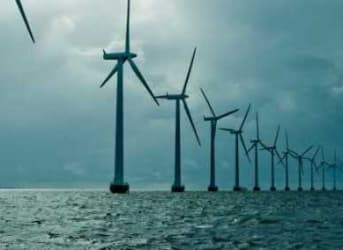Two related articles appeared in Blowout Week last Sunday. In the first the Daily Express fulminated about how the UK government’s energy policies will send electricity bills skyrocketing and maybe snuff the lights out at the same time:
The green crusade of successive governments is set to double electricity bills for households and cost homes £26 billion a year by 2030, it was claimed yesterday. The cost of renewable energy and carbon taxes will put an extra £983 a year on household bills by then, compared to relying on a mix of nuclear and new gas-fired power stations, three experts told a Lords committee. The Scientific Alliance report highlights warnings by the regulator Ofgem that the margin for electricity production for the 2015-16 winter will be at an all-time low of 2 per cent compared to the pre-privatisation requirement of at least 20 per cent. It means that in times of high demand, such as during very cold weather, Britain would be at risk of power cuts.
The second article consisted of a rebuttal from Mr. Ed Davey, UK Energy and Climate Change Secretary, who clearly felt sufficiently exercised by the Express article to issue one, and it’s short enough to be reproduced in its entirety:
The Express article on 15 October (Electric bills to soar by £1000) is totally wrong to suggest there is a risk of power cuts and bill increases as a result of the Government investing in wind power.
Related: With British Unity Intact, What’s Next for UK Energy?
We have prevented a predicted energy crunch by investing in an energy mix that includes renewable sources like wind and solar to work alongside other technologies. We certainly aren’t ignoring nuclear or gas – in the last two weeks we moved forwards in the construction of a new nuclear plant that will provide clean power for six million homes and announced that there had been huge interest in the first ‘capacity auction’ designed to encourage gas generation.
It’s no surprise that the US Chamber of Commerce ranks the UK as the most energy secure country in the EU.
My policies are keeping the lights on, cutting energy use and reducing polluting emissions, at the lowest possible cost for households and businesses.
Not exactly a convincing counter-argument, and as far as preventing a predicted energy crunch by investing in wind and solar is concerned it’s about as close to the opposite of the truth as it’s possible to get.
But one statement caught my eye – that the US Chamber of Commerce ranks the UK as the most energy secure country in the EU. This was news to me, so I looked up what the Chamber had to say on the subject and found its voluminous International Energy Security Risk Index, in which the Chamber indeed does rank the UK as the most energy-secure country in the EU and also as number four on its list of 25 “large energy-using countries” worldwide:

However, Mr. Davey obviously didn’t read the UK section of the Chamber of Commerce report before he referenced it, because it echoes what the Express said:
A growing concern is the shrinking of capacity margins, especially during the winter months when the electricity system is expected to reach 95% capacity, a situation that could lead (sic) to blackouts. Recent closures of large coal and older natural gas plants have added to this concern. These developments have contributed to the country’s very high electricity rates, which is another area where the UK is seeing its advantage slip away relative to the OECD baseline. UK power rates are among the highest in the International Index. This may become an even larger concern in the future as more and more affordable baseload capacity is retired and more expensive power generation sources, such as offshore wind, are added to the system.
Related: Statoil Hits North Sea Oil Bonanza In Abandoned Field
There also seem to be some problems with the Chamber of Commerce’s rankings, such as how the UK, Denmark, Germany, Spain and Poland come to be ranked as more energy-secure than Russia. Here are the basic criteria the Chamber of Commerce used to generate the rankings (detailed scores by category are given in the text). They could probably use some improvement:

But now that the UK’s international energy security ranking has been officially adopted as a measure of performance by Mr. Davey we must take it into consideration in judging results. The specific questions are; exactly how energy-secure is the UK, where does it really rank internationally, and how does one measure energy security anyway? All suggestions gratefully received.
By Roger Andrews
Source: http://euanmearns.com/
More Top Reads From Oilprice.com:
- No Shale Revolution For Europe
- Winter Gas Supply Crunch In Europe Unlikely, Experts Say
- Dim Future For North Sea Energy



















Eh? Nearly half that of Germany or Spain.
Rely on gas from Norway when Russia can largely determine the price - now, that is a really bad idea.
Nuclear power cheap!!! Two words - Hinkley Point.